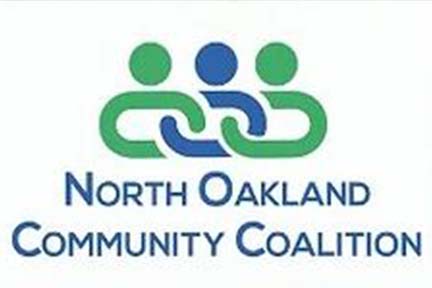
by orionontv | May 7, 2025 | Transportation
MDOT lifting all remaining spring weight restrictions Friday
LANSING, Mich. - Effective 6 a.m. Friday, May 9, the Michigan Department of Transportation (MDOT) will lift the remaining seasonal weight restrictions on all state trunkline highways in the state of Michigan. State routes typically carry M, I or US designations.
Weight restrictions are implemented during the spring frost thaw period and are now completed for the 2025 season.
County road commissions and city public works departments put in place their own seasonal weight restrictions, which usually, but not always, coincide with state highway weight restrictions. Signs are generally posted to indicate which routes have weight restrictions in effect.
For weight restriction information and updates, call 800-787-8960, or you can access this information on MDOT’s website at www.Michigan.gov/Truckers, under “Restrictions.” All-season routes are designated in green and gold on the MDOT Truck Operators Map, which is available online. You also may sign up to receive e-mail alerts.
Trucking companies located in New Jersey and Canada can obtain information by calling 517-373-6256.

by orionontv | May 7, 2025 | Regional News

Gov. Whitmer Announces $25 Million in Statewide Placemaking Grants to Support Vibrant Communities, Encourage Population Growth
Placemaking and development projects across Michigan’s 10 prosperity regions will receive support from the MEDC’s Revitalization and Placemaking program
LANSING, Mich. – Governor Gretchen Whitmer joined the Michigan Economic Development Corporation (MEDC) today in announcing approval of $25 million in grant funding for projects across the state of Michigan through the Revitalization and Placemaking program, which supports community revitalization needs in Michigan communities by investing in projects that promote population and tax revenue growth.
This latest round of RAP funding is being awarded to 27 applications and will support approximately 64 projects in 48 communities throughout the state, leveraging over $120 million in total investment in public spaces. The MEDC’s Place, Programs and Services team received 81 applications with a total funding request of $83,125,309, reflecting the continued interest and demand for resources that support the growth of vibrant, diverse, and resilient communities across the state.
“Today’s grants underscore our commitment to the state’s Make It in Michigan economic development strategy, supporting the People, Places, and Projects that are integral to the growth of Michigan’s economy,” said Gov. Whitmer. “These investments will help create vibrant places that attract and retain talent, add critical housing, enable business creation and attraction, and provide resources for Michiganders and our communities. I will work with anyone and do anything to continue getting things done for our state.”
Administered by MEDC, the RAP program provides access to gap financing for place-based infrastructure development, real estate rehabilitation and development, and public space improvements. Eligible applicants are individuals or entities working to rehabilitate vacant, underutilized, blighted and historic structures and the development of permanent place-based infrastructure associated with traditional downtowns, social-zones, outdoor dining and placed-based public spaces.
“The MEDC is proud to celebrate the places that make our state great and excited to see the impact these RAP grants have on our communities,” said MEDC Chief Place Officer Michele Wildman. “Thanks to Governor Whitmer and the Michigan legislature’s support for this program, the revitalization and placemaking efforts in communities across our two peninsulas will create meaningful opportunity for every Michigander who calls our state home.”
The range of projects awarded across the state highlights the importance of placemaking in supporting the growth and vibrancy of Michigan’s communities.
|
|
|
Applicant City/Twp/Village
|
|
|
|
Lake Superior Community Partnership
|
Marquette, Ishpeming, Negaunee
|
|
|
|
|
|
|
|
|
East Bay Charter Township
|
|
|
|
|
The City of Boyne City Downtown Development Authority
|
|
|
|
|
|
|
|
|
|
City of Alpena Downtown Development Authority
|
|
|
|
|
NEMCOG – Northeast Michigan Council of Governments
|
West Branch, Roger City, East Tawas, AuSable Township (Oscoda)
|
|
|
|
|
|
|
|
|
Grand Rapids Economic Development
|
|
|
|
|
|
|
|
|
|
|
|
|
|
|
|
|
|
|
|
Midland Business Alliance Foundation
|
|
|
|
|
Genesee County Parks & Recreation Commission
|
|
|
|
|
|
|
|
|
|
|
|
|
|
|
Lansing Economic Area Partnership
|
|
|
|
|
|
|
|
|
|
|
|
|
|
|
|
|
|
|
|
Main Street Park Alliance
|
|
|
|
|
Lower Town Riverfront Conservancy
|
|
|
|
|
|
|
|
|
|
|
|
|
|
|
|
|
|
|
|
|
|
|
|
|
|
|
|
|
|
|
|
|
|
|
|
Total Funding Recommendation:
|
|
RAP-Support Project Highlights
The Main Street Park Alliance in the City of Chelsea will be awarded $1,000,000 to complete The Main Street Park Project, a collaborative effort to transform a 25-year vacant blighted brownfield site into a 2.82-acre vibrant community park in Chelsea’s historic downtown commercial district.
The site, formerly used for industrial purposes, has been vacant and fenced off for decades. The redevelopment of this property into a new public space will create a valuable community asset that aligns with broader community development and economic development goals.
“The Main Street Park Project will convert a blighted and contaminated property in Downtown Chelsea into a vibrant public space that will help the community to achieve its environmental, recreational, and economic goals,” said Chelsea City Manager Marty Colburn. “Many generations will benefit from this park’s impact on our community’s vitality. The City of Chelsea appreciates the Main Street Park Alliance, community members and the State of Michigan for all the support and effort to take on such an impactful project.”
“I know how important it is to have a place where families can come together, where kids can play safely, and where everyone feels welcome,” said State Representative Kathy Schmaltz (R-Jackson). “Main Street Park will be that special place for Chelsea — a space that reflects the heart of the community. So many people have come together to bring this vision to life. I support this, and I’m glad the state is stepping up to support it too.”
“The old Federal Screw Works property sat vacant and contaminated, unusable for many years. With the support of this grant, the City of Chelsea will complete the fabulous and long-awaited Main Street Park project, revitalizing a key space in the heart of its historic downtown,” said State Senator Sue Shink (D-Northfield Twp.). “I thank Gov. Whitmer and the Michigan Economic Development Corporation for recognizing the importance of this investment and supporting the creative energy of our community.”

by orionontv | May 6, 2025 | Health and Wellness
Happy May!
In the newsletter below, we will cover:
- What we’ve been up to in Lake Orion and Oxford the past few months
- Our May Board Member Spotlight
- Level Up Camp information
|
|
| It’s been a busy spring for the NOCC! Throughout the months of March and April, our team presented 54 vape education workshops to Lake Orion and Oxford 5th and 7th grade classrooms. On April 15th, we wrapped up 14 hours of QPR Suicide Prevention Trainings at Oxford High School. In total, we had the pleasure of supporting and serving over 1,200 students between our two districts! |
|
| Kristin Sliwinski, Board Secretary
Please share a bit about your family:
I was born and raised in Lake Orion, and this community holds a very special place in my heart. My husband, Ron, and I are proud parents of 10-year-old twin daughters, Coley and Bailey, who attend Stadium Drive Elementary. I’m also lucky to have an incredible bonus son, Owen, who is currently a junior at Lake Orion High School and the best big brother our girls could ask for.
What is your profession?
I am the principal of Learning Options High School, where I’ve had the privilege of serving for the past decade. I began my career in special education and have remained passionate about inclusive, student-centered education throughout my journey in the field.
Why did you want to become involved with the NOCC?
I wanted to join the NOCC board because its mission aligns closely with my passion for supporting students and fostering a healthy, inclusive community. As an alternative high school principal, I see firsthand the importance of prevention education, collaboration, and belonging in helping young people make positive choices. I hope to contribute my experience in education and leadership to further NOCC’s impact in our community.
What is your favorite NOCC program?
Level Up Camp is one of my favorite programs because it gives students the tools they need to navigate the challenges of middle and high school in a fun, engaging way. It helps rising 6th graders build confidence, develop communication skills, and learn healthy coping strategies—setting them up for success.
What is your favorite thing to do in the Lake Orion/Oxford area?
I love enjoying the area’s beautiful natural resources—exploring trails, spending time at parks, or getting out on the water. Afterward, I enjoy visiting local restaurants for a good meal and the welcoming community vibe. The mix of outdoor adventure and great dining makes this area a wonderful place to be. |
|
| Registration is open! Youth entering 6th grade at Oxford and Lake Orion Community Schools for the 2025-2026 school year are invited to join the NOCC for a 4-day camp. Camp will run Monday through Thursday, 9:00am-1:00pm, during the following dates:
Your camper will play games, create art, and participate in group activities while becoming better prepared for their middle and high school years. Topics covered include resiliency, goal setting, communication skills, dealing with stress, drug and alcohol refusal skills, and more. This is also an excellent opportunity for your child to become familiar with the middle school setting, practice opening lockers, and meet new friends that will be a part of their middle school experience. Campers will have so much fun they won’t even realize they are learning skills that will strengthen their future!
Students must register under the school they will be attending in the fall. There is a $50 deposit upon enrollment that can be reimbursed or donated to the NOCC at the camp’s end. Registration for each week of camp will end the Monday before that week of camp is to begin.
Registration for our Level Up Camp is open at noccmi.org. |
|
|

by orionontv | May 6, 2025 | Regional News


Cyber Snapshot
FAKE RECAPCHA ATTACKS
Several times a day, robots on websites ask humans to verify
that they are not a robot by clicking on a checkbox, and the most
common version of this prompt is the Google reCAPTCHA.
Because this is such a common occurrence, threat actors are
now using fake CAPTCHA in their attack methodology.
Websites still show the original prompt that users are used to
seeing, but they are also prompted to press a series of
keystrokes (usually involving WIN+R, CTRL+V, and Enter) to
prove that they are human. This allows the website to execute a
command on the workstation, usually a remote PowerShell
script, to download malware from an external website and
execute it on the workstation.
Fake CAPTCHA prompts have been found on websites that
users may trust and use regularly, such as local news websites.
Some threat actors have purchased advertisement space from
advertising networks used frequently by trusted websites which
their targets may frequent. Generally, the advertising network
will not review the advertising content shown, allowing for
malicious ads to be shared through the advertising network.
These malicious ads force the trusted website to redirect to a
malicious website when displayed, prompting the user with the
fake CAPTCHA.
Compromised users have reported to the MC3 that they believed the trusted website was asking
them to prove they were not a robot, so they thought nothing about doing what was requested.
To avoid detection, the fake CAPTCHA is only shown to a limited number of users (usually over
a pre-determined period of time, or a certain number of times per day for a given geographic
region). This means that the website owner is usually not aware of an issue stemming from
their website. Even if the website owner wants to investigate a complaint from a visitor, they are
generally unable to replicate the issue. The MC3 has reached out to several website owners
and found that many are reluctant to remove advertising network content from their website due
to potential loss of revenue.
This document is the property of the Michigan Cyber Command Center (MC3) and is prepared for the limited purpose of information sharing. The information is designated
UNCLASSIFIED – TLP: CLEAR. Information found within this document can be shared without restriction. This document must not be reclassified in any way, in whole or in part.
Violation of this restriction will be cause for removal from MC3 distribution lists.
mc3@michigan.gov 1-877-MI-CYBER www.michigan.gov/mc3 Page 1 of 1
Cyber Snapshot
Exploring and Assessing Current Topics MICHIGAN CYBER COMMAND CENTER (MC3)
Recommendations:
• The WIN+R (Run), WIN+S (Search), and WIN+X (Power User Task Menu) shortcuts are
often only used by power users within your organization. Use registry settings or group
policy to disable these shortcut keys on your normal user workstations.
• Malware utilizing PowerShell will generally attempt to mask its functionality using two
built-in alias functions: iex (Invoke Expression) and ii (Invoke Item). Removing these
aliases at the user profile level for workstations which do not commonly run PowerShell
commands may interrupt some malware from functioning properly.
• Setting the PowerShell execution policy to “Restricted” or “AllSigned” through group
policy, will limit unknown script execution and prevent the user from accidentally running
an unsigned script.
• Most malicious domains are registered for less than a month before they are used for a
malicious purpose. If your web filtering or anti-malware software permits blocking
outbound access to websites based on the age of the domain, this can be an effective
method to prevent your users from reaching potentially malicious content.

by orionontv | May 1, 2025 | Regional News
|
FOR IMMEDIATE RELEASE:
May 1, 2025
|
|
AG Nessel Hails Work of Elder Abuse Task Force as Michigan’s Uniform Securities Act Administrative Rules Take Effect
LANSING – Today, Michigan Attorney General Dana Nessel and the Elder Abuse Task Force are celebrating the implementation of critical amendments to Michigan’s Uniform Securities Act. These changes designate securities brokers, dealers, and investment advisors as mandatory reporters of suspected financial exploitation of vulnerable adults.
Signed into law by Governor Gretchen Whitmer in December 2023, the statute officially went into effect in March 2024. The corresponding administrative rules were enacted earlier this week (PDF). The securities industry is now legally required to alert law enforcement or Adult Protective Services when they suspect a vulnerable adult is being financially exploited.
“By requiring securities brokers, dealers, and investment advisors to report suspected financial exploitation, the Uniform Securities Act closes a dangerous loophole that previously helped enable bad actors to drain the investment accounts of vulnerable residents,” Nessel said. “I am proud of the important work the Elder Abuse Task Force has done and continues to do to protect the life savings of our seniors and to ensure they can age with dignity, security, and peace of mind.”
This statute is one of the major accomplishments of the Elder Abuse Task Force. Michigan’s Elder Abuse Task Force launched in 2019 and consists of more than 55 different organizations in the public, private, and nonprofit sectors – all working together to combat elder abuse. The more than 100 individuals on the Task Force are divided into seven committees working diligently to accomplish nine initiatives (PDF), including requiring certification and training for professional guardians. Other achievements include the following:
- The adoption of a Vulnerable Adult Incident Report form for investigation by law enforcement across the state, including the implementation of related trainings;
- The Financial Exploitation Prevention Act (FEPA), which was signed into law in 2021 to ensure mandated reporting for financial institutions on suspected fraud or exploitation; and
- The Uniform Power of Attorney Act, which was passed and became effective July 1, 2024, to make powers of attorney more accessible with a standard form in the statute. Attorney General Nessel recently released a public service announcement explaining the new law.
More than 100,000 older adults in Michigan are victims of elder abuse. They experience abuse, neglect, and exploitation. Michigan residents seeking elder abuse resources are encouraged to call 800-24-ABUSE (22873), or 855-444-3911 to report suspected elder abuse.
|
|

















